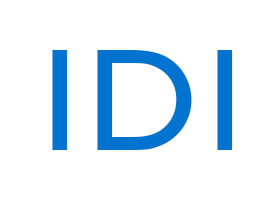and Engineers Have Hearts
by: Gerald Sindell, Partner, Identity Dynamics Institute
The Red Flag of Commoditization
It’s a brutal market out there for talent. At one end of the spectrum, trucking companies offer cash bonuses that go untaken, while turnover holds steady at a staggering 90%-plus. At the other end of the spectrum, in the technology sector, the unemployment rate is well under 2% and recruiters’ attempts to find new talent simply go unanswered.
What both of these seemingly intractable challenges share is that they are being treated as if truck drivers and engineers are each in an interchangeble group — as if all of these people are commodities. In virtually any area of business, commoditization is a red flag.
At the Identity Dynamics Institute, we’re always looking for opportunities to de-commoditize. Why? Because when anything becomes a commodity, value has been lost. It doesn’t have to be this way if you know who you are, not just what you do.
Sustainably-Sourced Trucking
With a strong sense of identity, individuals are able to avoid being lumped in with everyone else who has similar talent. And when organizations have a strong sense of their own identity, which means they know what they can do better than anyone else can, they will have a competitive edge in attracting and retaining talent.
If you’re a trucking company wanting to differentiate itself, wanting to develop some long-term loyalty from both drivers and customers, here’s a bombshell thought: stop treating your drivers like poultry and start communicating that fact to your customers. Find ways to make your drivers’ lives better — whether it’s finding ways for them to get better food on the road and even time for a break at the gym.
 Find out what they want, and what’s doable, and then do it. Yes, doing so is going to put pressure on your margins, but your customers can turn what you’re doing for your drivers into a competitive advantage for themselves. Patagonia can advertise: “Delivered by sustainably sourced trucking.” The first adopters will get the biggest bang, so go for it!
Find out what they want, and what’s doable, and then do it. Yes, doing so is going to put pressure on your margins, but your customers can turn what you’re doing for your drivers into a competitive advantage for themselves. Patagonia can advertise: “Delivered by sustainably sourced trucking.” The first adopters will get the biggest bang, so go for it!
Now what about those empty-handed high-tech recruiters? First off, if those LinkedIn blasts that worked so nicely last year are now going unanswered, you will need to de-commoditize your client’s job offerings. We realize your sponsoring company is telling you they really, really need to have their employees showing up at work. But we know that almost all potential hires won’t even talk with you unless they get to work at home at least part of the time.
The Recruiter/Client Come to You Know Who Chat
So you’re going to need to have a chat with your client. Yes, you understand they have a big investment in vast, flashy and now empty offices. Those are sunk costs, whether or not you can fill those seats. But if you want projects done on time, just let go of trying to get everyone back to the office. And then it’s going to be time for the employer to look in the mirror and figure out who they are, in other words discover their identity and what they’re driven to do. That identity discovery process will help your client de-commoditize themselves and almost everything they do. They will become clear on what they’re better at than virtually every other company, and they’ll make that difference the most important part of their job offerings.
Out of the Trap
Then it will be your job to find the talent that shares those newly-surfaced values. That means instead of blasts on LinkedIn, you’re going to look for people, one at a time, who have some overlap with the vision and passion of the employer. Your job will to be explain the identity of the organization to the candidate. Now you can talk about shared values, about longer career goals, and you can talk about achievements in the future that will really mean something to both company and talent.
You’re going to get out of the commodity business.
Identity Based Management means never falling into a commodity trap in the first place. And for those already in the quicksand, we believe there’s always a way out.
